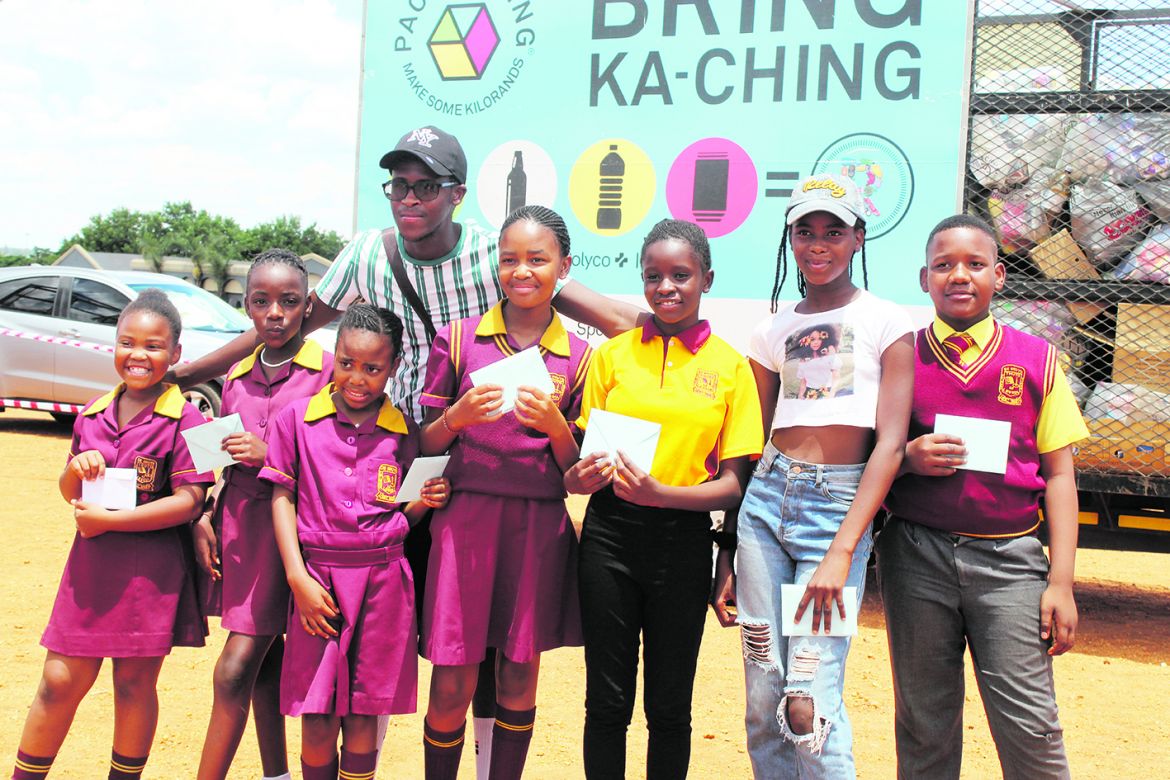News
You will find interesting news and information here as part of our commitment to educate our teams, suppliers and our clients on the importance of sustainable and environmentally sound business practices.
News | Fibre Circle: Driving Environmental Sustainability
Fibre Circle: Driving Environmental Sustainability
October 15 2024 By Paper Pledge fibre, circle, systaunability, environment, paper pledge

Fibre Circle, a South African producer responsibility organisation, is focused on keeping renewable and recyclable paper and paper packaging out of South Africa's landfills.
"Our mission is to drive sustainable practices in the industry through extended producer responsibility (EPR) initiatives," explains the organisation's CEO, Edith Leeuta.
With a mandate to ensure responsible and sustainable management of paper and paper packaging waste in South Africa, Fibre Circle works closely with producers to uphold environmentally friendly practices and compliance with EPR regulations.
Its primary objectives include promoting the circular economy for paper and paper packaging, reducing environmental impacts, and encouraging responsible waste management practices among producers and consumers.
As such, Caxton and CTP Publishers and Printers collaborate with Fibre Circle to raise awareness about paper recycling and promote sustainable practices both in-house and among its readership.
Leeuta says Fibre Circle's partnership with Caxton strengthens its 'collective commitment to environmental sustainability'.
As part of its mandate to create a clean and dignified living and working environment for all South Africans, Fibre Circle runs various programmes for the community.
Recycling waste and ensuring livelihoods
In collaboration with K1 Recycling, spearheaded by Tshepo Mazibuko, Fibre Circle launched a pilot project in November in Moshoeshoe, Katlehong, to teach community members how to separate waste for recycling and earn a living.
"By implementing efficient waste separation methods at a grassroots level, our goal is to significantly boost recycling rates while mitigating environmental impact," explains Leeuta.
The project has now been extended to Eden Park, also located in Ekurhuleni. To date, 440 households are participating in the programme. "The warm reception from the community and enthusiastic participation of key stakeholders, including schools and churches, underscores this project's relevance.
"Witnessing the community actively embrace waste separation practices is gratifying. Early indicators show promising results, including heightened community engagement and notable improvements in waste separation techniques," says Leeuta.
Despite being in its early stages, the project is already making a positive impact in the community, including improved cleanliness and rodent reduction.
"The community has established a team of sustainability champions to ensure the project's momentum. The equipment we donated is being put to good use for community upkeep and school initiatives. Notably, the cleaning team has even secured a maintenance contract with a local school. The community has also secured a small piece of land from the municipality for its food composting project," says Leeuta.
In Eden Park, residents are hopeful that recycling education and training will change their lives for the better, especially for youth battling unemployment.
K1 Recycling and sponsors Fibre Circle and Polyco launched the Packa-Ching Initiative while commemorating Global Recycling Day on March 18. The project, which started with residents cleaning up at the swimming pool in Eden Park and surrounding areas, focuses on teaching participants about recycling and how products are repurposed.
"We want recyclable waste to end up at a recycling mill. We are creating employment and stimulating a circular economy where material such as paper is not thrown away, but is reused," says Leeuta.
One of the environmental champions in Eden Park, Nickle Peterson, says the programme has taught participants how recycling can better people's lives. While many community members already know how to recycle metal, they now know how to recycle other items as well.
Fibre Circle, in collaboration with Infinite Industries, Food and Trees for Africa and the Nkomazi Municipality, last year launched a pilot programme to replace pit latrines at disadvantaged schools with more sustainable and environmentally friendly alternatives, contributing to improved community health and hygiene.
Supplied by Infinite Industries, the Dignity Loos' cubicles, roofs, walls and doors are made from compressed poly- aluminium, which is derived from the foil layers of liquid beverage cartons used for products like fruit juice, milk, wine, and toothpaste tubes.
The toilets use less than one litre of water to flush and the toilet's container is designed to dry solid waste, which can be used to enrich school vegetable gardens' soil.
"The programme also aims to educate schools and their surrounding communities about the benefits of the circular economy," says Leeuta.
The pilot project, run at Mtfunyelwa Pre-Primary, Sizimesile Primary and Ntiyi Secondary School, is being rolled out to other schools.
The project also aims to improve food security by planting trees and vegetable gardens at schools under the auspices of Food and Trees for Africa.
"These gardens provide food for learners and local community members and help to transfer skills to the community at large."
Another project component is the recycling of paper and packaging.
"Schools are provided with recycling bins in which to collect this material, which is then collected by local businesses that form part of a parallel SMME development programme. The businesses pay the schools for the materials they collect, providing a source of income while also removing waste from the school and its surrounding community."
Significant progress has been achieved, setting the stage for its expansion to additional schools.
"These projects underscore the feasibility of sustainable solutions to infrastructure challenges encountered in rural schools. Through the utilisation of recycled materials and innovative waste management systems, the project not only addresses immediate ablution needs but also confronts the broader issue of waste disposal," says Leeuta.